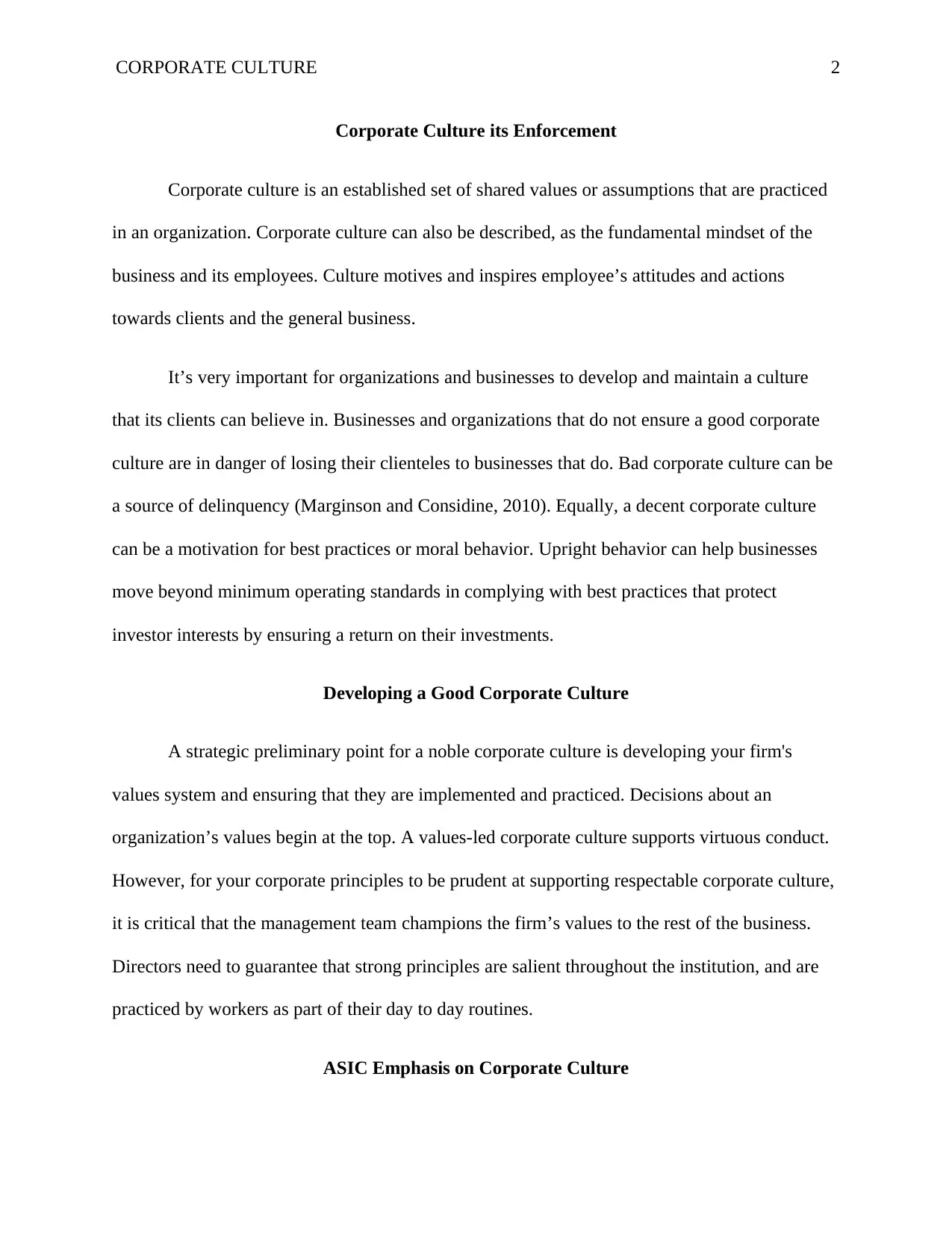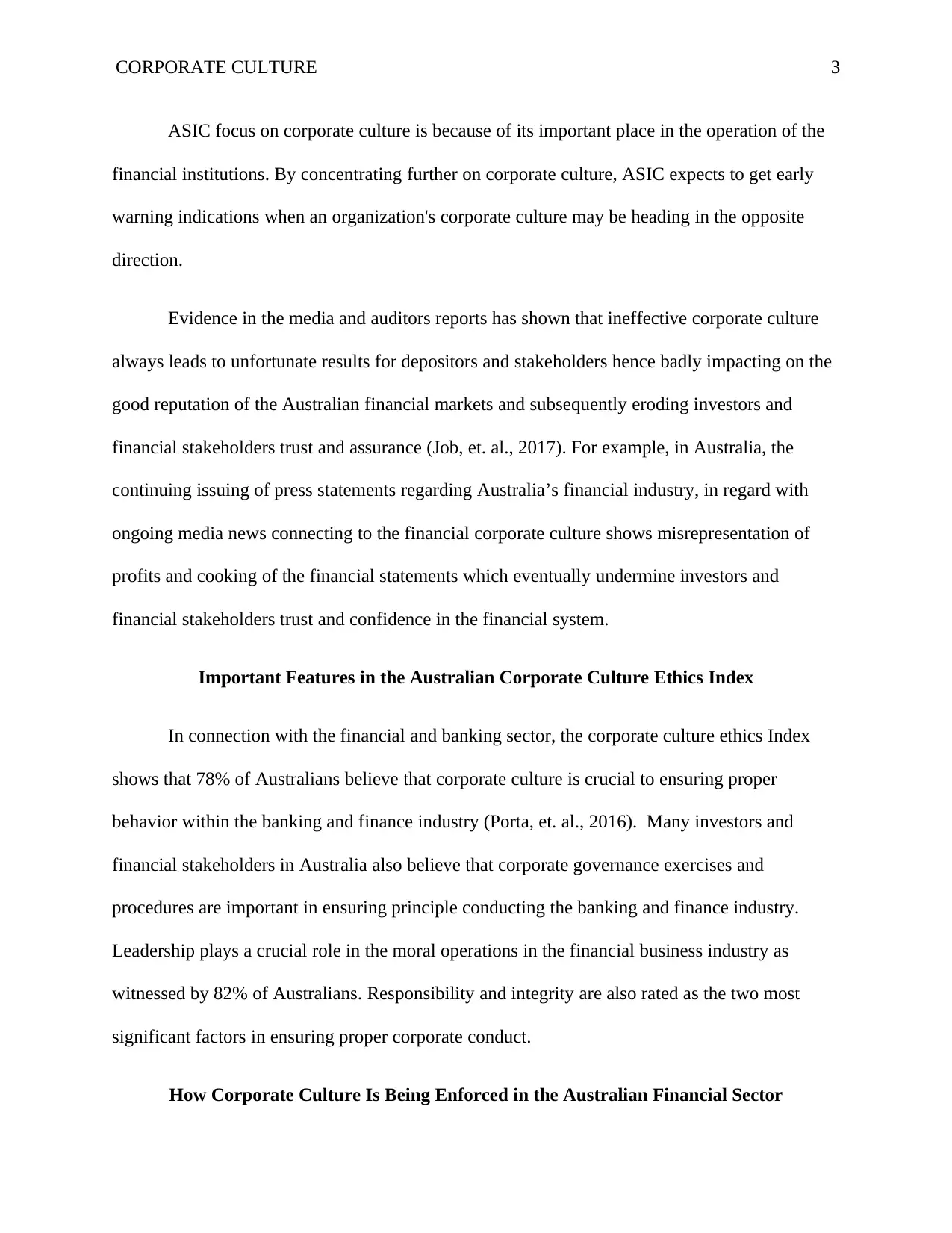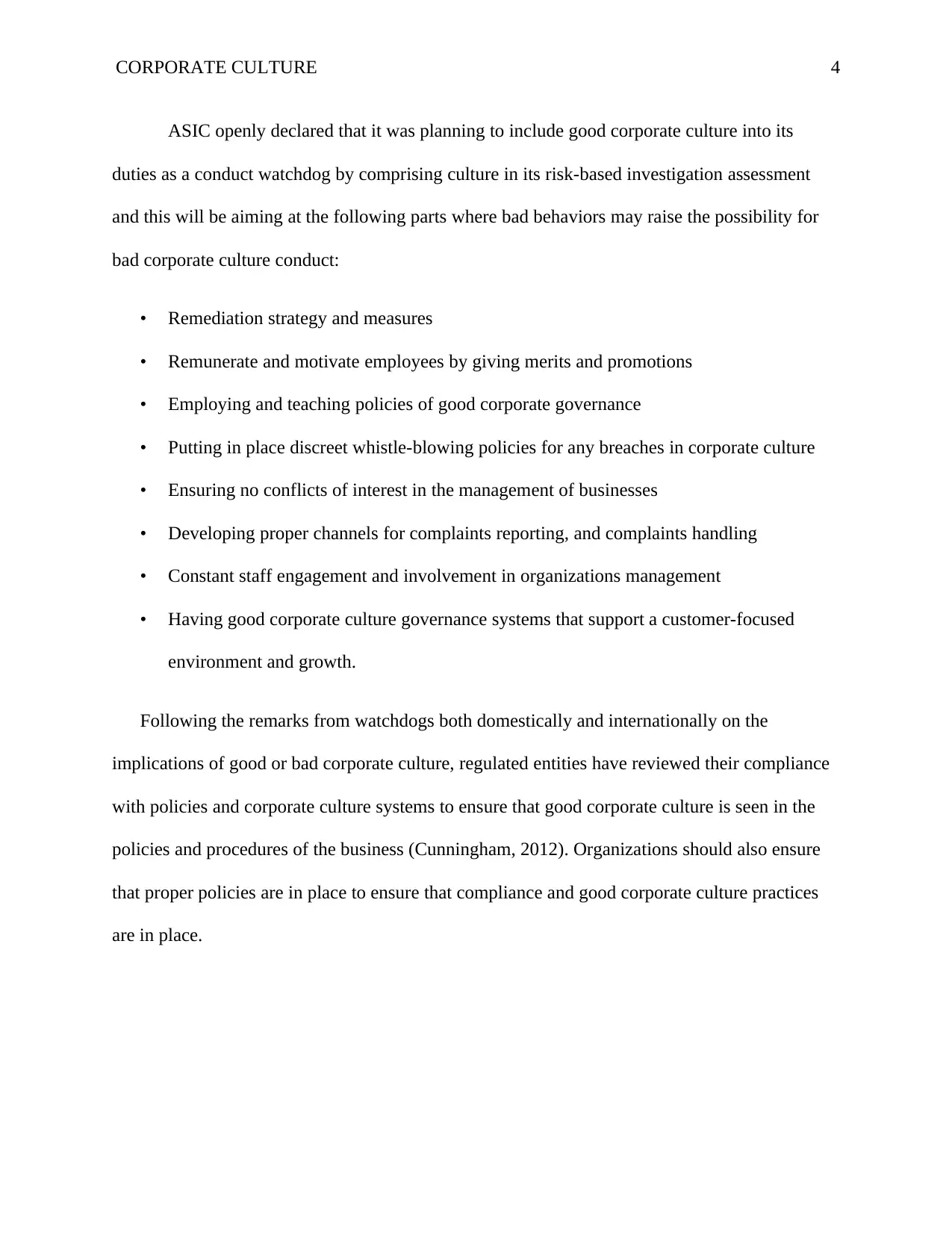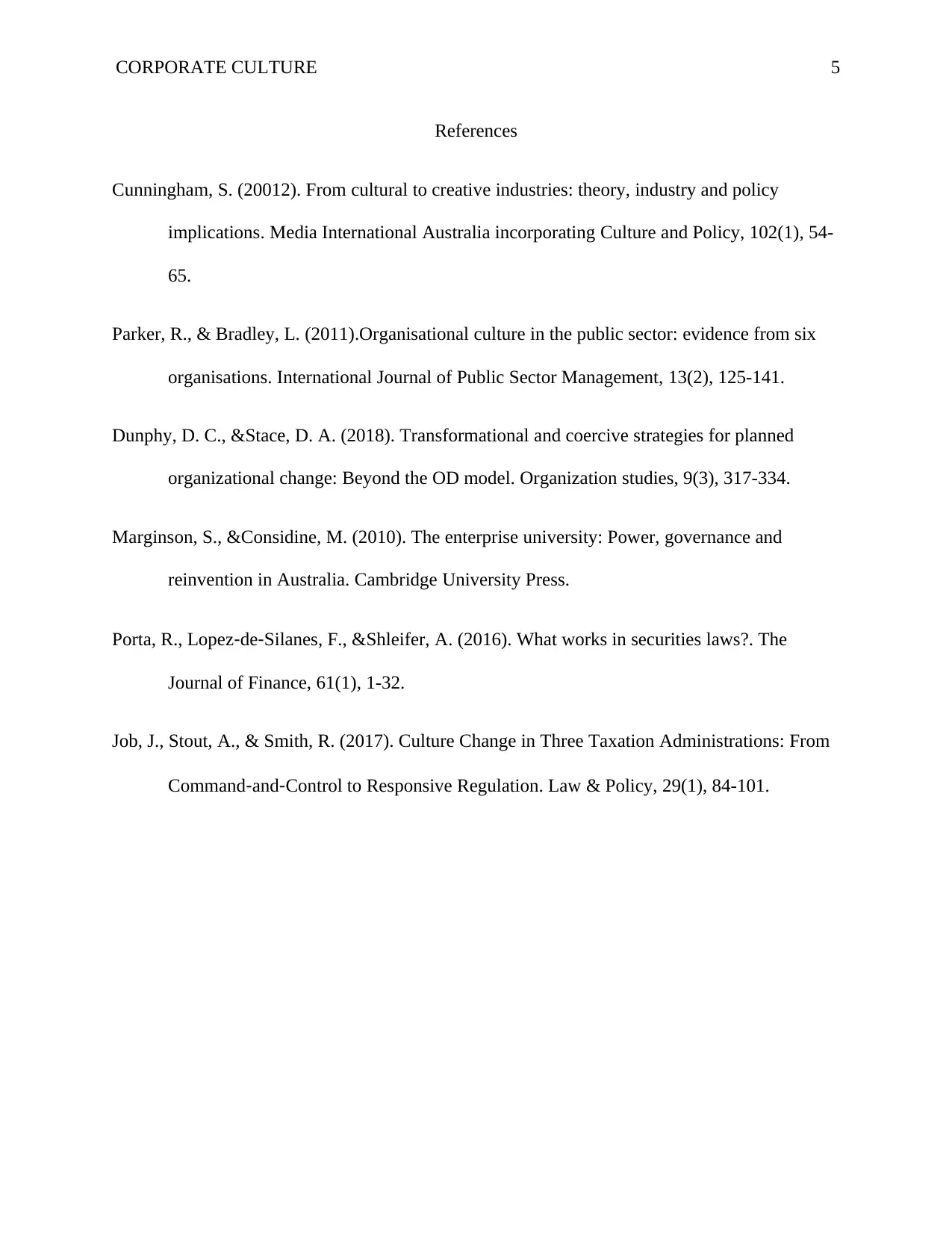Corporate Culture: Enforcement in the Australian Financial Sector
VerifiedAdded on 2021/05/31
|5
|999
|91
Essay
AI Summary
This essay provides a comprehensive overview of corporate culture, defining it as a set of shared values and assumptions within an organization that influence employee behavior and business practices. It emphasizes the importance of a positive corporate culture for client trust and ethical conduct, while highlighting the risks associated with a negative culture. The essay details the process of developing a strong corporate culture, starting with establishing core values and ensuring their consistent implementation, particularly from leadership. It explores the Australian Securities and Investments Commission (ASIC)'s focus on corporate culture within the financial sector and the impact of unethical practices. The essay also discusses key features of the Australian Corporate Culture Ethics Index, emphasizing the importance of ethical behavior, leadership, and integrity. Finally, the essay outlines how corporate culture is enforced in the Australian financial sector, including ASIC's risk-based investigations, remediation strategies, and the implementation of policies to ensure compliance and ethical practices. The essay references several key studies and reports to support its arguments.
1 out of 5












![[object Object]](/_next/static/media/star-bottom.7253800d.svg)